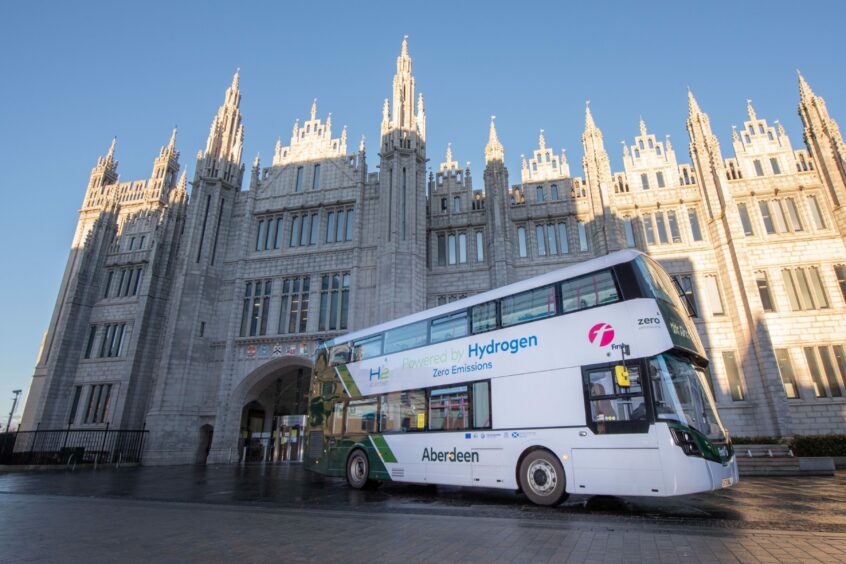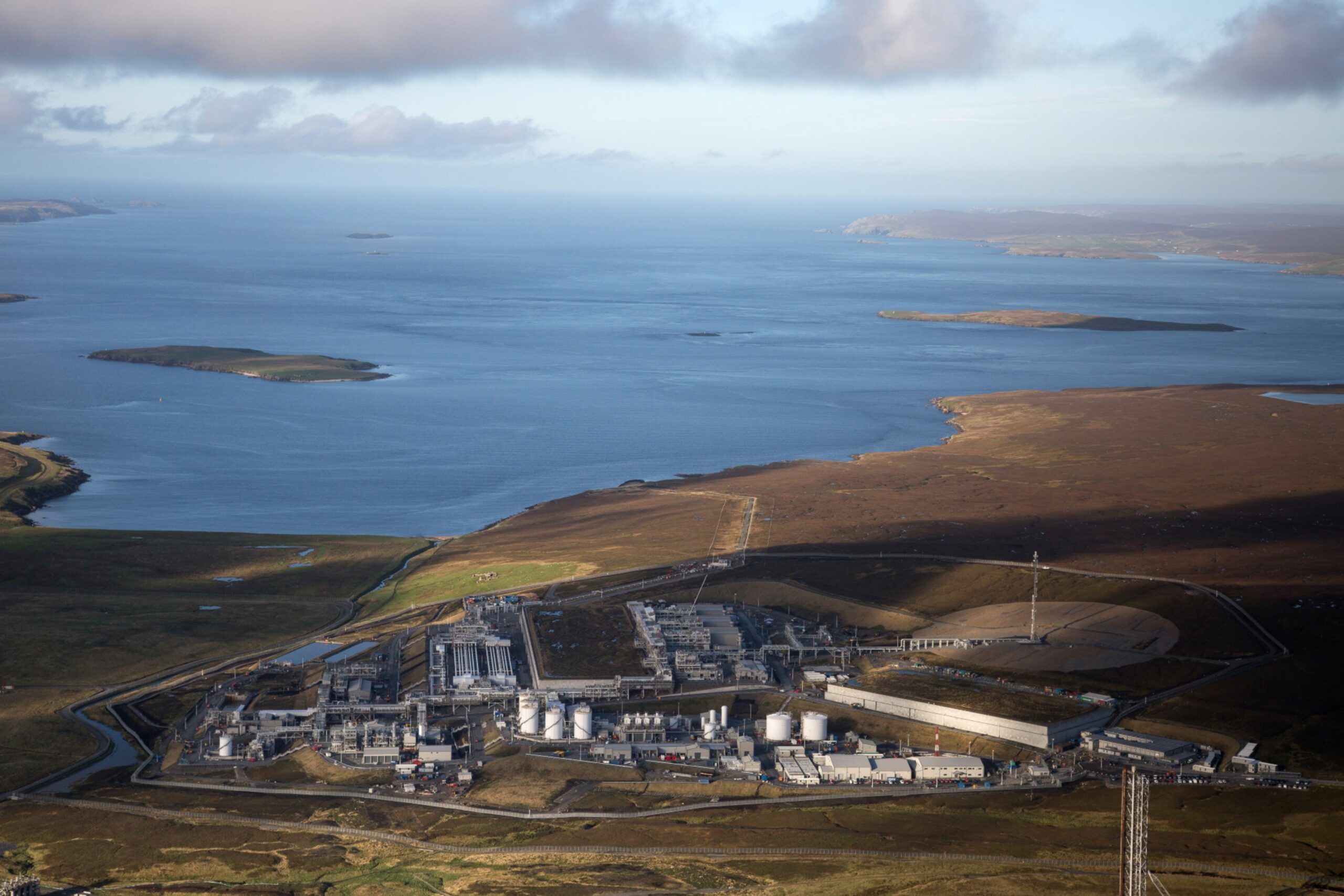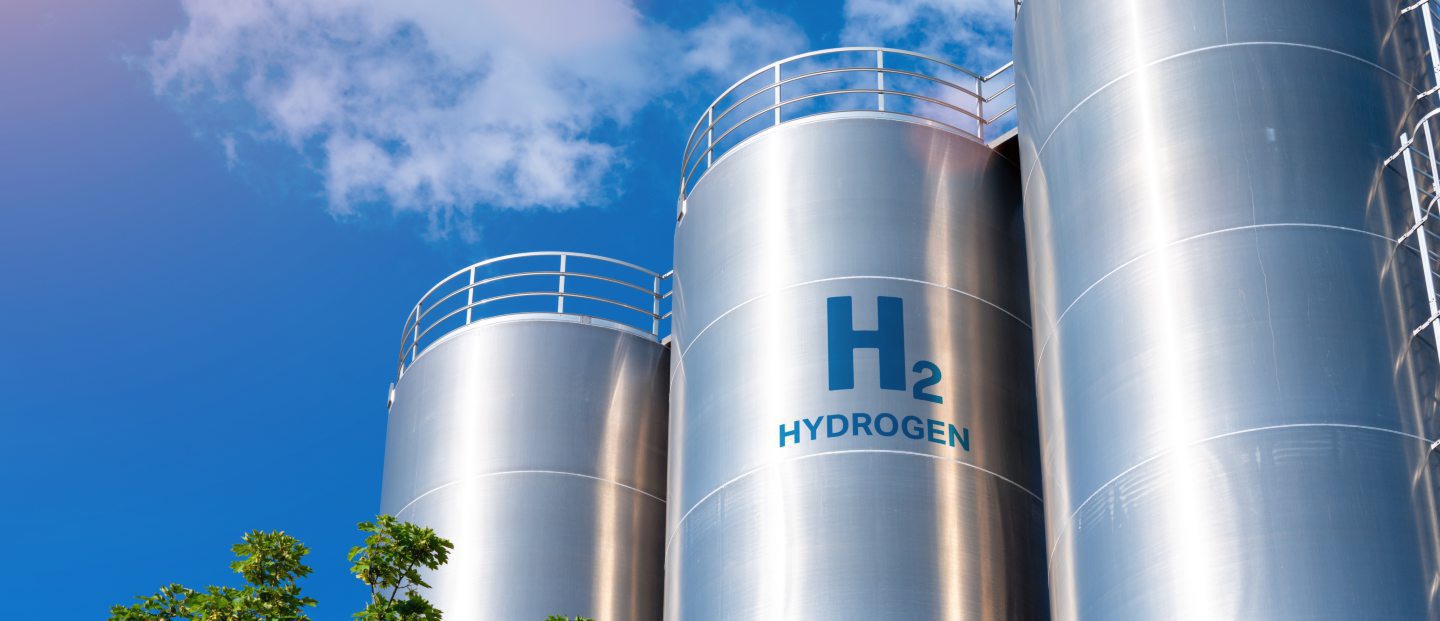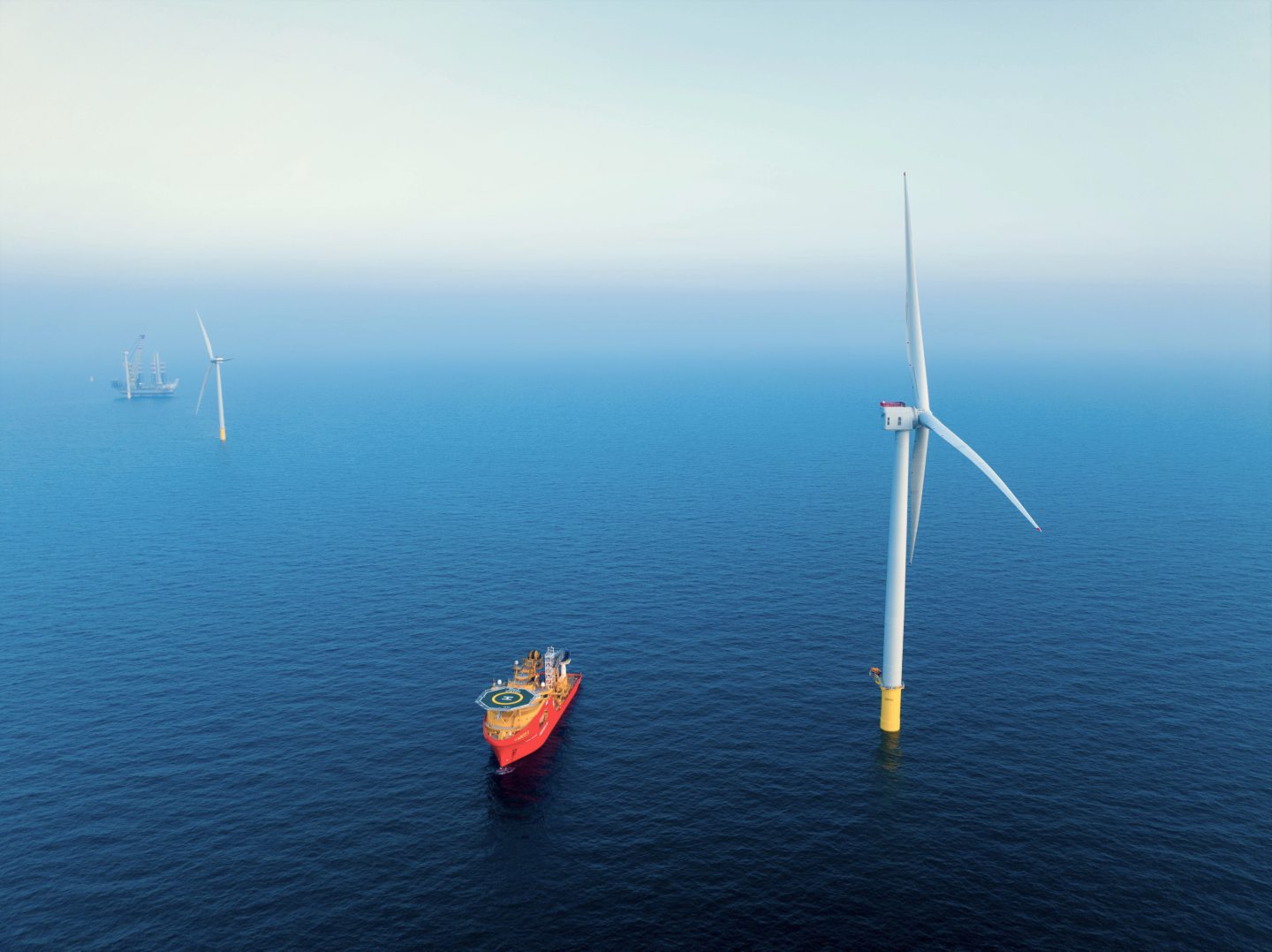
Low carbon hydrogen projects from North Sea operators EnQuest and BP are among seven UK projects set to share in £21 million of government support.
The Department for Energy Security and Net Zero (DESNZ) announced the funding today through its Net Zero Hydrogen Fund.
The UK government announced the green industries funding as part of an overall £4.5 billion in funding “strategic manufacturers” contained in last year’s Autumn Statement.
The government said the seven hydrogen projects receiving funding have the potential to increase UK hydrogen capacity by 800MW.
Four of the projects will develop plans for new hydrogen production plants while projects in Aberdeen, the Tees Valley and Suffolk are “set to get spades in the ground”.
Ranging from Suffolk to Shetland, the projects aim to produce green fuel for buses, trucks and trains, while also supporting firms to transition away from natural gas.
North East hydrogen projects funded
Among the projects to win funding is the Aberdeen Hydrogen Hub, a joint venture project between BP and Aberdeen City Council planned to be delivered in three phases.
Land at Hareness Road, at Altens Industrial Park in Aberdeen, has been earmarked for the hydrogen production facility, while the proposed solar farm will be on the former Ness landfill site.
The first phase will deliver over 800 kilograms of green hydrogen per day, enough to fuel 25 buses and a similar number of other fleet vehicles.
Phase Two envisages supply to larger-volume utilisation hydrogen vehicles such as rail, freight and marine. Phase Three will involve the supply of hydrogen for heat and export.
The Aberdeen Hydrogen Hub joint venture chief executive Oliver Taylor said the GIGA funding “is an important step towards considering final investment decision” n the first phase of the project.
“By harnessing natural resources, a skilled workforce, and the pioneering spirit of the north-east of Scotland, the Aberdeen Hydrogen Hub could create a new energy solution that builds on the region’s strong oil and gas heritage,” Mr Taylor said.
Opposition councillors in Aberdeen have raised concerns about delays to the project, which had been due to be sanctioned in early 2023.
Sullom Voe hydrogen project
EnQuest subsidiary Veri Energy also received funding for a FEED study into a proposed hydrogen project at the Sullom Voe Terminal on Shetland.
Veri Energy is aiming to establish an “energy and decarbonisation hub” at Sullom Voe by creating an advanced facility for hydrogen generation and derivative production.
The project is planned to have an initial capacity of 50MW, with potential expansion to 300MW in subsequent phases.
Veri Energy said the project will “harness Shetland’s abundant renewable resources like wind and tidal power to generate hydrogen through advanced electrolysis technology”.
Veri Energy chief executive officer Salman Malik the funding is a “significant first step” in the company’s ambitions to produce green hydrogen at Sullom Voe.
“Significant additional work is required to establish feasibility of the project,” Mr Malik said.
“Collaboration with local and national governments, Shetland’s community, and strategic partners, will be critical to our success.”
Shetland Islands Council CEO Maggi Sandison the Sullom Voe hydrogen project is a first for the island.
“This is clear recognition from the UK government of the strategic importance of the Sullom Voe Terminal and its significance to Scotland as a whole,” she said.
Hydrogen fund boost
Hydrogen projects in Suffolk and the Tees Valley Hydrogen also received funding.
Run by Hydrab Power, the Suffolk Hydrogen project will make green hydrogen for low carbon service vehicles at the Sizewell C nuclear site operated by EDF.
Meanwhile, Exolum will build a new hydrogen refuelling station to help supply the local transport sector in the Tees Valley.
A second Tees Valley project led by EDF, which aims to use green hydrogen to power a green methanol plant, also received funding.
According to EDF, if the project achieves start of operations in 2030, the e-methanol plant could be the largest of its kind in the UK.
The remaining projects to receive funding for feasibility studies include the second phase of an RWE green hydrogen project at its Pembroke Power Station in Wales and a new electrolytic hydrogen project at Speke, near Liverpool.
Hydrogen economy
The Net Zero Hydrogen Fund announcement follows government support for 11 major new hydrogen production projects in December 2023.
Secretary of State for Energy Security Claire Coutinho said the government is “cementing the UK’s place as a world leader in hydrogen”.
“The new projects we’re funding across the country will boost our supply of clean homegrown energy for use in buses, trains and local businesses,” Ms Coutinho said.
“By backing the UK hydrogen industry, we can support over 12,000 jobs and up to £11 billion in private investment by 2030.”
Minister for Energy Efficiency and Green Finance Lord Callanan said the government expects hydrogen to play a “vital role” in decarbonising businesses and transport.
Hydrogen UK CEO Clare Jackson said the endorsement of seven “pioneering projects” underscores the “transformative power and versatility of hydrogen”.
“Such pivotal announcements fortify the UK’s burgeoning hydrogen economy, accelerating us towards meeting our ambitious production,” Ms Jackson said.
Hydrogen challenges
With the UK hydrogen sector facing a ‘critical year‘ in 2024, the allocation of government funding will be welcome support for the nascent sector.
However, the government has faced criticism from within the sector over its flagship hydrogen scheme.
Speaking at Offshore Europe last year, Protium chief executive officer and founder Chris Jackson said he expects HAR 1 to be a “total failure” and described the way government support is being implemented as a “shambles”.
Recommended for you


 © Guillaume Perrin
© Guillaume Perrin © Supplied by Shutterstock
© Supplied by Shutterstock © Supplied by SSE
© Supplied by SSE